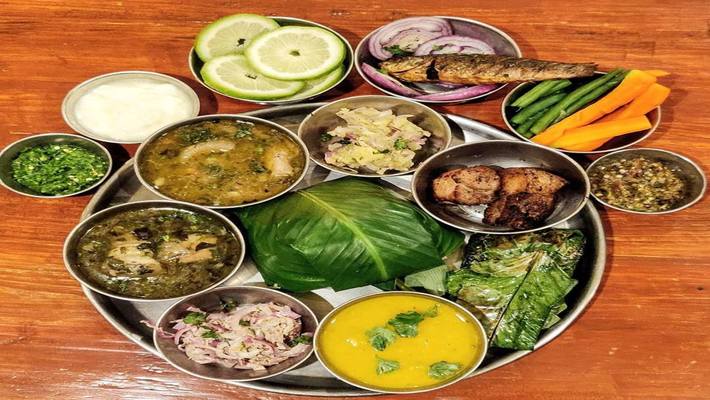
Assam – the state in Northeast India tucked in between mountain ranges from all sides, and a thousand rivers running through narrow hilly valleys that ultimately joins the main river the Brahmaputra is a state in India filled with natural visual treats. Other than the vivid natural beauty, the state also boasts diverse communities hailing from a different ethnic and religious background.
However, apart from the wonderful mix of cultures and gorgeous valleys, a little-known aspect of Assamese culture is its unique style of Assamese cuisine that incorporates herbs and spices found in very few places around the world. The climate and geography of Assam is shared across all the Northeastern states. The Northeastern part of India comprising of 7 states including Assam is an extension of the Tropical forests of South East Asia covering the countries of Myanmar, Thailand and all the way to Vietnam. Even though located considerably above the equator the entire NE region as a whole is much more tropical than the Southern states of Tamil Nadu and Kerala owning to the fact that it is an extension of the South East Asian forest zone known as Gualigangshaan. The region naturally facilitates the growth of unique herbs, greens, vegetables, fruits, spices, eatable leaves and roots that are found nowhere else in the world.
While Spinach (Palak) or Meethi are two of the most popular and well-known saag or ferns consumed all over India, the state of Assam has more than 150 varieties of Saag or Greens alone that are much healthier. It brings with it a more comprehensive deal of benefits. Bamboo shoots and Bhut Jolokia or King Chili are just some of the spices that have become popular ingredients coming out from the North East over the years. But, to claim that Bamboo Shoot and King Chili are unique ingredients used in Assamese cuisine would be misinformation as these ingredients are used pretty much across all NE cuisines.
Here is a quick list of herbs, spices and fruits that makes Assamese cuisine truly unique, and also the associated health benefits that come with it:
Elephant Apple
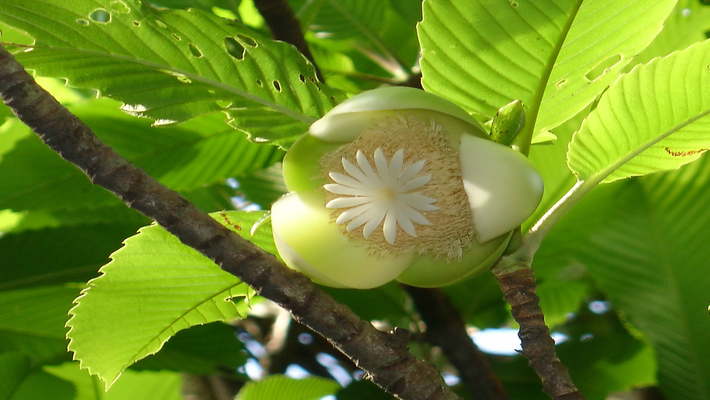
Known as Ou Tenga in the local Assamese language, Elephant Apple is an extremely sour Citrus fruit native to the Himalayan region of China and Southeast Asia including Assam. Unlike other cultures, the people of Assam prepare a unique fish curry that adds the Elephant Apple as the dominant ingredient—resembling more of a broth than a curry the fish recipe made from Ou Tenga brings with it some unique health benefits as the fruit has many curative properties. The fruit is also extensively used for Dal preparations in Assamese cuisine.
Benefits:
- The Elephant Apple treats nervousness, stomach upsets and fatigue
- Proven treatment for Diarrhea and Stomach Cancer.
- Helps in reducing hair loss
Banana Flower
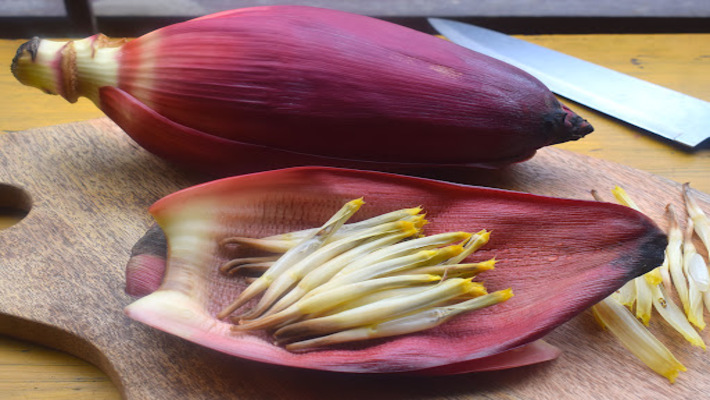
Considered as waste or surplus to requirement across many cultures, the Banana flower is a delicacy in Assamese cuisine. Known as Koldil in the local Assamese language Banana flowers are used across a variety of vegetable preparations in Assamese cuisine. Apart from finding its usage in vegetable dishes the koldil or Banana flower is also used to prepare some unique pigeon meat, duck meat as well as chicken meat recipes in Assamese cuisine, cooked nowhere else in the world.
Benefits:
- The ultimate Diabetes controller
- Purifies blood
- Averts lung and heart diseases
- Keeps infections at bay, especially in organs related to the respiratory systems.
- Helps support the Menstrual cycle
- Slows the ageing process
- Improves the functioning of the Kidneys
- Slows the ageing process
- Excellent food to consume in the times of Corona
Dhekiya Saag or Fiddlehead Fern
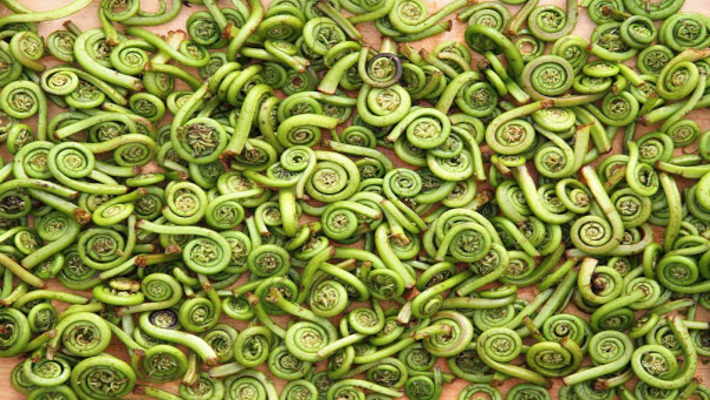
The state of Assam is native to over 150 variety of ferns, greens and related herbs. Out of which the Dhekiya Saag or Fiddlehead Fern is one of the favourites in Assamese cuisine and also one of the easiest to cook. There is a unique Assamese dish of small fish fry made with Fiddlehead ferns that deserves a special mention. With little to no calories involved, the Fiddlehead Fern is packed with an abundance of Vitamin C, Niacin and Potassium, an ideal herb to consume to prevent getting diseases.
Benefits:
- Excellent for high blood pressure and diabetes
- Purifies blood to a great extent
- Ideal herb to eat for people suffering from blood deficiency
Kosu or Taro
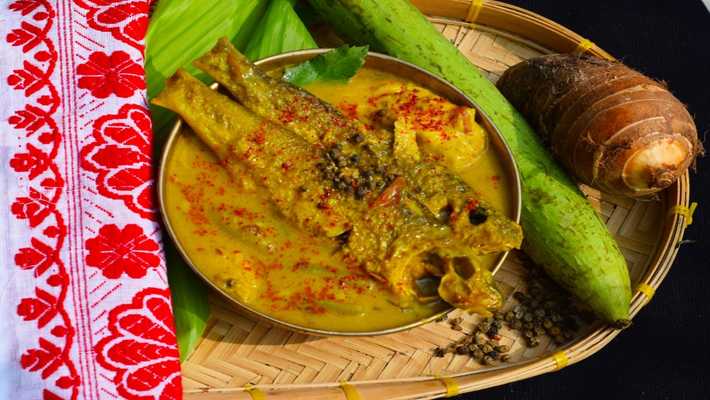
Taro or Kosu in the local Assamese language is a huge leafy plant native to the tropical region across the globe. Similar to the Banana flower and stems, Kosu is also ignored as a food ingredient across many cuisines but this not so in the case of Assamese cuisine. Taro has a special place in Assamese cuisine as it is not only cooked with vegetables but also is used to make a unique fish curry recipe and even a pork dish exclusive to Assam.
Benefits:
- Extremely rich in fibre and packed with nutrients
- Has anti-cancer properties
- The perfect remedy for throat infections
- Helps improve digestion
- The best blood purifier
- Excellent food to have in the times of a pandemic.
Sesame Seeds
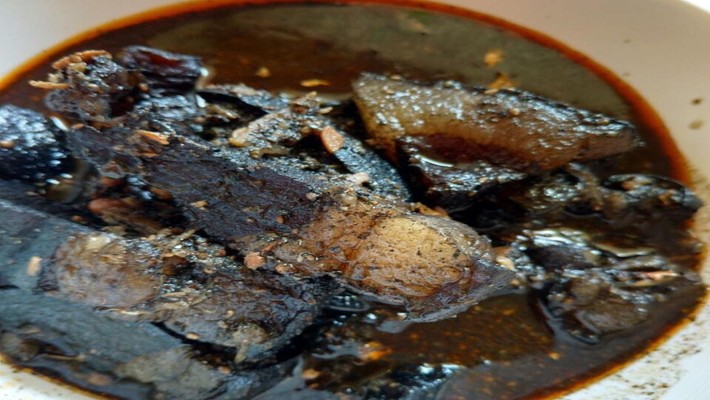
Sesame seeds or popularly known as til in India is a trendy Indian spice that has made its way across many culinary styles. Still, nowhere it is used as innovatively as in Assamese cuisine. The grinded til seeds are used to prepare an exclusive Assamese fish curry dish where only one variety of Fish, i.e. the Amur Carp or Kui in local Bengali language is used. Sesame seeds are also used to prepare a thick Assamese pork gravy dish.
Benefits:
- Best food to prevent hair loss and strengthen one’s hair
- Til contains rich Calcium, Iron, Magnesium, Phosphorous and fibre content ideal for boosting energy
- Improves skin health
- Increases lactation for mothers
- Helps improve digestion
All in all, Assamese cuisine is characterized by the usage of mild spices, native herbs cooked in a way that emanates intense flavours at the same time. Pork cooked in Sesame seeds, Fish smoked inside Banana leaf, Tangy fish curry cooked with Elephant Apple, Pigeon cooked with Banana flower are some of the many unique dishes worth trying when visiting Assam.







